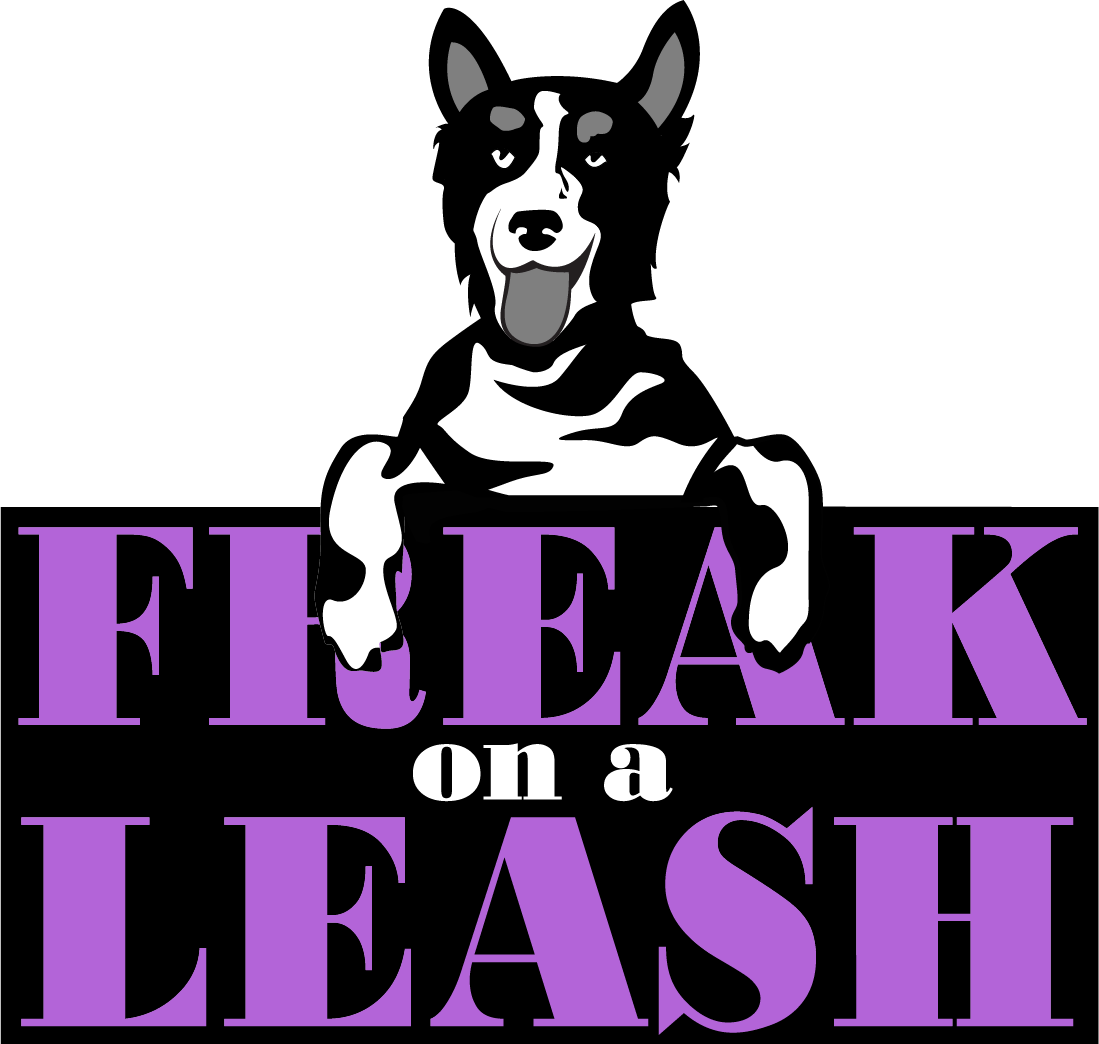 Key Highlights
Key Highlights
- Hormones play an enormous role in shaping a dog’s behavior, influencing everything from bonding to aggression.
- Understanding the impact of hormones like oxytocin, vasopressin, and testosterone can provide insights into your dog’s actions.
- Recognizing symptoms of hormonal imbalances, such as behavioral changes, urinary incontinence, or appetite fluctuations, is vital for early intervention.
- Spaying or neutering can significantly influence a dog’s behavior by altering hormone levels.
- Consulting with a veterinarian about unusual behaviors can help determine if hormones are a contributing factor.
Introduction
Have you ever thought about what makes your dog act in unique ways? Training and the environment in which your dog lives are important, but hormones also have a big effect. More and more, veterinary medicine understands how hormones connect with dog behavior. For dog owners, knowing about these hormones can help understand and even solve behavioral problems.
Understanding Hormones and Their Roles in Dogs
Hormones are like chemical messengers. They move through the bloodstream to control many body functions. These functions include growth, metabolism, and behavior. Just as in humans, a dog’s hormone system affects how they react to their surroundings. The hormonal system involves important glands, such as the pituitary, thyroid, and adrenal glands. These glands help a dog’s body work correctly.
When hormones are not balanced, the result can be changes in behavior and sometimes physical symptoms. By understanding how hormones are important in a dog’s reactions and moods, we can better meet their needs and seek help with any imbalances.
The Basics of Dog Hormones
The center of a dog’s hormonal system is their reproductive organs. These organs make hormones like estrogen, progesterone, and testosterone. These hormones are important for sexual growth, reproduction, and affect different behaviors. Female dogs undergo big hormonal changes during their estrus cycles, which can lead to changes in behavior.
For male dogs, testosterone, which comes from the testes, affects their sexual function, dominance, and territorial behavior. While these hormones are important for a dog’s normal life cycle, they can also cause behavior changes that pet owners need to be prepared for.
Spaying female dogs and neutering males removes the reproductive organs and is common practice in veterinary medicine. This action prevents unwanted pregnancies but also changes hormone levels. As a result, dogs may show different behaviors after being spayed or neutered.
Key Hormones and Their Functions
Oxytocin is known in people as the “love hormone.” It has been shown to be relevant to bonding and social interactions in many animals. When dogs have higher oxytocin levels, due to things like petting or other types of affection, they may be feeling more trust and a stronger bond with their humans. Vasopressin is another important hormone. It affects a dog’s social behavior, especially how they act about their territory and whether or not they feel aggressive.
Cortisol, on the other hand, is a hormone that is linked to stress. When dogs go through difficult or scary situations cortisol levels rise, which can change their behavior. If a dog believes there is a threat, the rise in cortisol can further feelings of fear, anxiety, and even aggressive behavior.
The Impact of Hormones on Dog Behavior
Hormones are like hidden signals in a dog’s body. They have a large effect on how dogs act. By understanding how changes in hormones connect to behaviors like being aggressive or anxious, we can learn a lot about a dog’s feelings.
How Oxytocin Influences Bonding and Social Behavior
Oxytocin is a strong hormone that helps build a close bond between dogs and their human family members. When a dog plays, cuddles, or even makes eye contact with trusted humans, its oxytocin levels go up. A rise in oxytocin leads to further feelings of attachment and trust. It also helps the dog feel good, making the bond between the dog and humans even stronger.
Research shows that dogs with higher oxytocin levels are more social. They look for ways to interact and show more affection towards their humans. Oxytocin also helps lower stress and anxiety in dogs. This creates a more relaxed and happy home for all.
Knowing how oxytocin affects dogs shows us why positive social interactions are important for a dog’s emotional health. Fun playtime, training with praise, and lots of physical affection can help make a dog feel happier and more secure.
The Role of Vasopressin in Aggression and Territorial Behaviors
Vasopressin is an important hormone that affects a dog’s behavior towards its territory. When a dog feels its territory is threatened, the level of vasopressin goes up. This can lead to behaviors like guarding, barking, or even other aggressive behaviors.
Aggressive behavior isn’t just about vasopressin, however. There are many other factors like socialization, training, and health issues that may play a part. Addressing these issues may require behavior change methods, medication, or a combination of both.
Hormonal Imbalances and Behavioral Changes
Just like people, dogs can have hormonal imbalances that can lead to changes in their behavior. These changes can be small, such as more anxiety, being lazy, or a change in eating habits. Sometimes, the changes can be big, like becoming uncharacteristically aggressive or fearful. It’s important to investigate these changes so you can find the hormonal issues behind them.
Finding problems early can help in managing them better and can make your dog’s life happier. If you notice any unusual behavior in your dog, talk to a veterinarian who knows about dog behavior for a correct diagnosis and treatment.
Identifying Symptoms of Hormonal Imbalances in Dogs
Recognizing the signs of hormone problems in dogs is important for good care and effective treatment. While behavior issues often get the most attention, physical signs can also be important clues. One clear sign is urinary incontinence, especially in spayed female dogs.
Changes in skin and coat health, like hair loss, thinning fur, or repeated skin infections, can be caused by hormone issues. Moreover, some dogs may show signs of tiredness, weight gain, or less interest in play, which may point to a hormone imbalance.
Keep in mind that these signs can also relate to many other health issues. This is why it is essential to get a full check-up from a vet for accurate diagnosis and treatment.
Common Hormonal Disorders and Their Behavioral Signs
Thyroid problems, like hypothyroidism, can cause tiredness, weight gain, and increased anxiety or fear. Adrenal problems, such as Cushing’s disease, can result in more thirst, urination, and possibly increased irritability or aggression.
Changes in appetite, whether a dog is unusually hungry or eating less, can signal hormonal imbalances. These changes show how closely a dog’s endocrine system is linked to their behavior.
Testosterone and Its Effects on Dogs
Testosterone is the main male sex hormone. It is important for the physical growth and behavior of dogs. This hormone affects many things, like muscle size, bone strength, how dogs act in their environment, and their mating behaviors. It helps shape how a male dog interacts with the world. While testosterone is important for a dog’s natural behavior, very high levels can cause behavior problems.
By understanding how testosterone affects dogs, pet owners can better understand why their male dog is behaving in particular ways. This is especially true for behaviors related to dominance and territory.
Understanding Testosterone’s Role in Male Dogs
As a male dog grows, he usually becomes sexually mature between six and twelve months of age. During this time, his testosterone levels increase. This causes changes like a deeper bark, more muscle, and a stronger urge to mark his territory. Testosterone is also important for a male dog’s ability to create sperm and reproduce.
Behavioral Issues Linked to High Testosterone Levels
However, high testosterone can sometimes cause various behavior issues. Problems may include aggression aimed at other male dogs, an increase in territorial behavior, wanting to roam, and mounting behavior.
Territorial behavior can include urine marking, increased barking, and fights. These instincts are normal in the wild, but can cause issues in homes. Testosterone also increases sexual behavior. This can lead to mounting, humping, and more interest in female dogs in heat.
Even though these actions are normal for male dogs, they can be difficult for people to manage.
The Adrenaline Rush: Fear, Stress, and Anxiety in Dogs
Adrenaline is known as the “fight-or-flight” hormone, and is important in understanding a dog reacts to scary or stressful situations. When a dog sees something that triggers them—such as a loud noise, a strange person, or being away from their family—their body releases a lot of adrenaline.
This boost helps the dog either face the threat or run away to safety. While this reaction is helpful for staying alive in nature, it can lead to unwanted behaviors at home. These behaviors include barking, shaking, destructiveness, or even being aggressive.
How Adrenaline Affects a Dog’s Behavior in Stressful Situations
Adrenaline is released when dogs face stressful situations and causes several changes in their bodies. It increases heart rate and sends more blood to the muscles. It also boosts the senses. All of this helps prepare the dog to respond to a threat
When a dog is more alert, they may react more intensely to small things. The dog may become more reactive because they feel intense fear and anxiety, thanks to the adrenaline.
Strategies to Manage and Reduce Stress-Induced Behaviors
Managing stress in dogs takes a thoughtful plan. It is necessary to evaluate the environment, work on modifying behaviors, and talk to a vet if needed:
- Environmental Enrichment: Making the environment feel safer can lower stress for your dog. Give them a special, quiet space in the home, stick to a routine, and avoid loud sounds or busy places.
- Behavior Modification: Use positive training methods. This means teaching your dog to feel good about things that usually stress them out. Being patient, consistent and sticking to a plan yields the best results.
- Veterinary Consultation: If your dog still shows signs of stress, see a vet. They can check for any health problems and may suggest anti-anxiety medication to help calm your dog and make the most of the training process.
Managing Hormonal Effects Through Diet and Exercise
Keeping our dogs’ hormones balanced is about more than fixing health problems. It includes making good choices for their daily lives. The food we give our dogs and how much exercise they get can greatly affect their hormones and behavior.
A quality diet full of important nutrients suited for your dog’s age and breed can help their hormones work well. Regular exercise along with a healthy diet will help your dog stay at a good weight, cut down stress, and feel better emotionally.
Nutritional Support for Hormonal Balance
A balanced diet is very important for your dog’s health and hormonal balance. Pet owners should focus on giving high-quality dog food. This food should have enough protein, healthy fats, and vitamins and minerals. These nutrients help make and control hormones.
Some nutrients, like omega-3 fatty acids, can help reduce inflammation. These nutrients are good for dogs with hormone problems. Omega-3s are found in fish oil and flaxseed, and can help your dog’s skin and coat improve.
It is also a good idea to talk to your veterinarian about your dog’s diet needs. This is especially important if they have any hormone issues. The veterinarian can suggest special diets or supplements that will meet your dog’s unique needs. This way, your dog gets the best nutrition possible.
The Importance of Regular Exercise in Managing Behavior
Regular exercise is not just for keeping your dog fit; it is also important for managing behavior problems linked to hormones. Activities like a quick walk, playing fetch, or visiting the dog park can help relieve stress. Exercise helps control the body’s stress responses. It affects hormone levels, like cortisol and adrenaline, which are involved in changes that may cause behavior issues.
Exercise also helps your dog release extra energy, which can lead to anxiety, frustration, and problematic behaviors. A fulfilled dog whose needs have been met is usually a well-behaved dog.
Try to develop an appropriate daily exercise plan that your dog enjoys, based on your dog’s breed, age, and energy level. Vary your physical activities to keep your dog mentally stimulated as well. Keep in mind that regular physical activity is important for your dog’s physical and emotional health.
Medical Interventions for Hormonal Imbalance
Diet and exercise are important for keeping hormones balanced. But sometimes, you may need medical help to address specific issues. Veterinary medicine provides various treatment choices. These can include hormone replacement therapy, medications to help with symptoms, or surgeries if needed.
A veterinarian who is well-educated in canine hormone issues can help find the best treatment for your dog. They will consider your dog’s diagnosis, age, health, and special needs.
When to Consider Veterinary Consultation
It is important to be aware when your dog’s behavior might require a trip to the veterinarian. Changes that happen suddenly or without explanation, especially if they coincide with symptoms like tiredness, drinking a lot, or changes in appetite, should always result in a vet visit.
Sometimes changes in behavior can be due to a dog’s surroundings, training or mental health. It is still very important to check for any health issues first, such as hormonal imbalances. Your veterinarian can evaluate your dog’s health, run tests if needed, and better determine why behavior changes are occurring.
Providing your dog with regular checkups and talking openly with your veterinarian is key for catching and handling health problems early.
Case Studies: Behavioral Changes After Hormonal Treatments
Case studies can provide valuable insights into the real-world impact of hormonal treatments on canine behavior, highlighting the potential for positive outcomes. Observing behavioral changes in dogs undergoing treatment sheds light on the interconnectedness of hormones and behavior. The following table showcases a simplified representation of typical case studies:
|
Dog Name |
Breed |
Hormonal Imbalance |
Treatment |
Behavioral Changes |
|
Buddy |
Labrador Retriever |
Hypothyroidism |
Hormone Replacement Therapy |
Increased energy, reduced anxiety, improved coat condition |
|
Luna |
Golden Retriever |
Cushing’s Disease |
Medication |
Decreased thirst and urination, reduced anxiety and irritability |
|
Max |
German Shepherd |
High Testosterone Levels |
Neutering |
Reduced aggression towards other males, decreased marking behavior |
These examples illustrate how addressing hormonal imbalances can lead to remarkable improvements in a dog’s behavior, underscoring the significance of veterinary intervention and tailored treatment plans.
Frequently Asked Questions
What are the first signs of hormonal imbalance in dogs?
Changes in how much your dog eats, increased water intake, increased urination, less energy, gaining or losing weight, and changes to the hair coat can indicate a possible hormone problem. If you see these signs, talk to your veterinarian.
Can spaying or neutering affect my dog’s behavior?
Yes, spaying or neutering can often change how dogs behave. It usually helps to reduce behaviors caused by high hormone levels. This can include less roaming, aggression, and mounting behaviors but can sometimes cause issues like aggressive behaviors. Making an informed decision with your vet is always recommended when thinking about any surgery that can affect behavior.
How do I know if my dog’s aggressive behavior is hormonal?
To find out if aggression is being caused by hormones, you should talk to a vet. They can examine the behavior and medical history of your dog. They might also suggest hormone testing to provide the right diagnosis.
Are there natural remedies for hormonal imbalance in dogs?
Making certain diet and lifestyle changes can help with hormone balances. You can switch to a higher quality, balanced diet and increase your dog’s exercise. However, this does not replace care from a veterinarian. When in doubt, it is always best to consult your veterinarian for advice.
How often should I have my dog’s hormone levels checked?
The timing for checking hormone levels in your dog depends on a few things, including your dog’s age, breed, health history, and any past medical issues. It is important to listen to your veterinarian and follow their advice for regular check-ups and tests.
Next Steps in Understanding and Managing Your Dog’s Hormonal Behavior
Stay updated on the latest studies in dog hormones and behavior. It is important to learn about hormonal issues in dogs, keep an eye on behavior changes, and talk openly with your veterinarian. This will help you understand how hormones affect your dog’s health.

